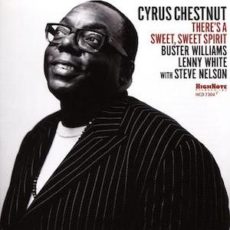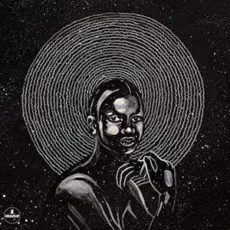
The Quarantined Jazz Voyager
The Jazz Voyager is still taking the variants very seriously and wearing his mask and social distancing as conditions present themselves. There is no evidence that stipulates that this is over and recommendations are still in place to wear your mask when in indoor public spaces.
Standing On The Rooftop is the sixth studio album by jazz vocalist Madeleine Peyroux. It was produced by Craig Street and released on June 14, 2011 on the Decca/Universal record label. All songs except 1, 6, 8, & 11 were written by Madeleine Peyroux 2 to 5, 7, 9, 10, 12 to 15.
The fifteen songs were recorded in February 2011 at several studios – Sear Sound in New York City on February 14~17 and Motherbrain Studio in Brooklyn, NY on February 26th, with additional recording at Downtown Music Studios and Wild Arctic in NYC, Vel Studios~ Brooklyn, Phantom Vox~Los Angeles, The Odd Bedroom, Basement & Garage and Sterling Sound. The mixing was done by Kevin Killen (tracks: 5 to 8), Matthew Cullen (tracks: 1, 3, 4, 9 to 12), and Tony Maserati (tracks: 2, 13 to 15)
This was the first album of Peyroux with Decca Records and her first with producer Craig Street, interrupting her longtime collaboration with Larry Klein. Standing on the Rooftop featured originals, along with three covers, Martha My Dear, I Threw It All Away and Love In Vain, plus Marc Ribot’s Lay Your Sleeping Head, My Love. It also paired Peyroux with new songwriting partners.
Track List | 56:36- Martha My Dear (John Lennon, Paul McCartney) ~ 2:32
- The Kind You Can’t Afford (Peyroux, Bill Wyman) ~ 3:59
- Leaving Home Again (Peyroux, Wyman) ~ 3:35
- The Things I’ve Seen Today (Peyroux, Jenny Scheinman) ~ 3:44
- Fickle Dove (Peyroux, Scheinman) ~ 3:28
- Lay Your Sleeping Head, My Love (music by Marc Ribot, lyrics by W. H. Auden) ~ 3:23
- Standing on the Rooftop (David Batteau, Peyroux) ~ 5:46
- I Threw It All Away (Bob Dylan) ~ 3:15
- The Party Oughta Be Comin’ Soon (Peyroux) ~ 5:00
- Superhero (Jonatha Brooke, Peyroux) ~ 3:21
- Love In Vain (Robert Johnson) ~ 3:40
- Don’t Pick a Fight with a Poet (Peyroux, Andy Scott Rosen) ~ 4:28
- Meet Me in Rio (Peyroux) ~ 3:51
- Ophelia (Batteau, Peyroux) ~ 5:12
- The Way of All Things (Peyroux) ~ 4:02
- Madeleine Peyroux ~ vocals
- John Kirby ~ keyboards
- Glen Patscha – keyboards
- Patrick Warren ~ keyboards
- Allen Toussaint ~ piano
- Jenny Scheinman ~ violin
- Christopher Bruce ~ guitar
- Marc Ribot ~ guitar
- Meshell Ndegeocello ~ bass guitar
- Charley Drayton ~ drums
- Mauro Refosco ~ percussion
- Creative Director ~ Pat Barry (3)
- Design Concept [Package Coordination] ~ Rafael Hernandez (2)
- Design [Graphic] ~ Rebecca Meek
- Engineer ~ Matthew Cullen
- Photography By [Cityscape Panorama] ~ Keith Sirchio
- Photography By [Portrait] ~ Mary Ellen Mark
More Posts: adventure,album,club,festival,genius,jazz,museum,music,preserving,restaurant,travel,vocal

The Quarantined Jazz Voyager
There’s A Sweet, Sweet Spirit ~ Cyrus Chestnut
Remain safe and healthy and be responsible for your health and others. That is all I request.
This week we listen to the music from There’s a Sweet Sweet Spirit, an album by pianist Cyrus Chestnut. Recorded on February 27, 2017 at Systems Two Recording Studios in Brooklyn, New York, the album was released on the HighNote label on Julyu 14, 2017.
- The Littlest One of All (Bobby Hutcherson) ~ 4:20
- Chopin Prelude (Frédéric Chopin) ~ 6:53
- Nardis (Miles Davis) ~ 7:33
- Little B’s Poem (Bobby Hutcherson) ~ 4:50
- Christina (Buster Williams) ~ 4:51
- CDC (Cyrus Chestnut) ~ 6:23
- You Make Me Feel Brand New (Thom Bell, Linda Creed) ~ 6:07
- Easy Living (Ralph Rainger, Leo Robin) ~ 8:32
- Rhythm-a-Ning (Thelonious Monk) ~ 4:51
- There’s a Sweet, Sweet Spirit (Doris Akers) ~ 5:36
The Players
- Cyrus Chestnut ~ piano
- Buster Williams ~ bass (tracks 1–4 & 6–9)
- Lenny White ~ drums (tracks 1–4 & 6–9)
- Steve Nelson ~ vibraphone (tracks 1, 4 & 8)
- Charlotte Small, Djoré Nance, Keesha Gumbs ~ vocals (track 7)
Tracks | 59:56
- The Littlest One of All (Bobby Hutcherson) ~ 4:20
- Chopin Prelude (Frédéric Chopin) ~ 6:53
- Nardis (Miles Davis) ~ 7:33
- Little B’s Poem (Bobby Hutcherson) ~ 4:50
- Christina (Buster Williams) ~ 4:51
- CDC (Cyrus Chestnut) ~ 6:23
- You Make Me Feel Brand New (Thom Bell, Linda Creed) ~ 6:07
- Easy Living (Ralph Rainger, Leo Robin) ~ 8:32
- Rhythm-a-Ning (Thelonious Monk) ~ 4:51
- There’s a Sweet, Sweet Spirit (Doris Akers) ~ 5:36
The Players
- Cyrus Chestnut ~ piano
- Buster Williams ~ bass (tracks 1–4 & 6–9)
- Lenny White ~ drums (tracks 1–4 & 6–9)
- Steve Nelson ~ vibraphone (tracks 1, 4 & 8)
- Charlotte Small, Djoré Nance, Keesha Gumbs ~ vocals (track 7)
The album was produced by the pianist who pulls from a multitude of generations for his song choices. From Monk and Miles to Chopin, Thom Bell and Linda Creed, blending them perfectly for our listening pleasure.This tight knit group of musicians carry the musical conversation forward never overstepping or interrupting but supporting whoever is speaking.
Tracks | 59:56
- The Littlest One of All (Bobby Hutcherson) ~ 4:20
- Chopin Prelude (Frédéric Chopin) ~ 6:53
- Nardis (Miles Davis) ~ 7:33
- Little B’s Poem (Bobby Hutcherson) ~ 4:50
- Christina (Buster Williams) ~ 4:51
- CDC (Cyrus Chestnut) ~ 6:23
- You Make Me Feel Brand New (Thom Bell, Linda Creed) ~ 6:07
- Easy Living (Ralph Rainger, Leo Robin) ~ 8:32
- Rhythm-a-Ning (Thelonious Monk) ~ 4:51
- There’s a Sweet, Sweet Spirit (Doris Akers) ~ 5:36
The Players
- Cyrus Chestnut ~ piano
- Buster Williams ~ bass (tracks 1–4 & 6–9)
- Lenny White ~ drums (tracks 1–4 & 6–9)
- Steve Nelson ~ vibraphone (tracks 1, 4 & 8)
- Charlotte Small, Djoré Nance, Keesha Gumbs ~ vocals (track 7)
More Posts: adventure,album,club,genius,jazz,museum,music,piano,preserving,restaurant,travel

The Quarantined Jazz Voyager
We Are Sent Here By History is an acclaimed studio album by Shabaka Hutchings, a British-Barbadian musician, under his band Shabaka and the Ancestors, composed of South African musicians. It was released on March 13, 2020 on Impulse! Records.
We Are Sent Here by History has charted in Germany, Scotland, U.S. and UK and reached number 3 on the latter. The album was recorded at Milestone Studio and Sumo Sounds Studio in Johannesburg, mixed at The Crush in London, produced by Shabaka Hutchings and Dilip Harris, the creative director was Josh Cheuse, and the illustration was by Daniela Yohannes.
Track Listing | 63:58 All songs were composed by Shabaka Hutchings with lyrics by Siyabonga Mthembu- They Who Must Die ~ 10:10
- You’ve Been Called ~ 6:29
- Go My Heart, Go To Heaven ~ 6:41
- Behold, The Deceiver ~ 6:01
- Run, The Darkness Will Pass
- The Coming Of The Strange Ones ~ 6:28
- Beast Too Spoke Of Suffering ~ 2:58
- We Will Work (On Redefining Manhood) ~ 5:24
- ‘Til The Freedom Comes Home ~ 7:06
- Finally, The Man Cried ~ 5:48
- Teach Me How To Be Vulnerable ~ 2:45
- Tenor Saxophone, Clarinet ~ Shabaka Hutchings
- Alto Saxophone ~ Mthunzi Mvubu
- Double Bass ~ Ariel Zamonsky
- Drums – Tumi Mogorosi
- Electric Piano, Fender Rhodes ~ Nduduzo Makhathini (track: 2, 4)
- Percussion ~ Gontse Makhene
- Piano ~ Thandi Ntuli (track: 2, 11)
- Trumpet ~ Mandla Mlangeni (track: 7)
- Voice ~ Siyabonga Mthembu
More Posts: adventure,album,club,genius,jazz,museum,music,preserving,restaurant,saxophone,travel

The Quarantined Jazz Voyager
Songs Of An Unknown Tongue
With the ever-mutating virus now spreading the Omicron variation, I am watching the detection and rise of this more contagious variants in South Africa, Germany, United Kingdom, Australia, Belgium, Israel, Denmark, Botswana, Italy, Canada, Hong Kong, and the Netherlands. Suspecting that it is already in America, I am getting my booster as precaution, not necessarily to ward off, and continuing my vigilance in remaining socially distant and wearing my mask.
This week I have selected a talented British vocalist Zara Mcfarlane. Her fourth album, Songs Of An Unknown Tongue, was produced by Kwake Bass and Wu-lu, and released on July 17, 2020 on Brownswood Recordings.
This album pushes the boundaries of jazz meshed with folk and spiritual traditions of ancestral Jamaica. Zara is a part of the British echelon that is converging young and older audiences still seeking the future of jazz.
Tracks | 48:27
Side One
- Everything Is Connected ~ 3:39
- Black Treasure ~ 3:38
- Broken Water ~ 3:54
- Run Of Your Life ~ 3:11
- Saltwater ~ 6:22
Side Two
- My Story ~ 6:37
- Native Nomad ~ 6:07
- State Of Mind ~ 4:52
- Roots Of Freedom ~ 7:35
- Future Echoes ~ 4:32
Players
- Zara Mcfarlane ~ Vocals
- Kwake Bass ~ Percussion, Drums, Drum Machine, Synths, Synth Bass, Guitar, Bass Guitar
- Wu~Lu ~ Percussion, Synths, Guitar, Bass Guitar
- Camilo Tirado ~ Percussion
- Lyle Barton: Rhodes, Biscuit Flute
- Idris Rahman ~ Tenor Saxophone
- Robin Hopcraft ~ Trumpet
More Posts: adventure,album,club,genius,jazz,museum,music,preserving,restaurant,travel,vocal

The Quarantined Jazz Voyager
As a nation of thinkers trepidly venture out to events, not out of fear but in caution, we continue to perform the safe practices of mask wearing and social distancing, this quarantined jazz voyager remains steadfast in protecting himself. Today I am playing one of my favorite genres, the big band, and this one is being led by a most wonderful woman. In 2020 Lenora Zenzalai Helm produced a fabulous record For The Love Of Big Band bringing to the fore the Tribe Jazz Orchestra and new arrangements to some of jazz’s classic compositions. There is something wonderful about listening to music that was created with love.
Track Listing | 1:16:00
- Blues For Mama (Nina Simone) ~ 4:42
- Bebop (Dizzy Gillespie, Deborah Brown) ~ 6:22
- Chega De Saudade (Antonio Carlos Jobim, Jessie Cavanuagh, Vinicius de Moraes, Jon Hendricks) ~ 6:39
- It Could Happen To You (Jimmy Van Heusen, Johnny Burke) ~ 5:26
- Soul Eyes (Mal Waldron) ~ 5:24
- Everything But You (Duke Ellington, Harry James) ~ 4:30
- I Didn’t Know About You (Duke Ellington, Bob Russell) ~ 5:50
- Sandu (Clifford Brown, Dupresha L. Townsend) ~ 9:00
- But Not For Me (George & Ira Gershwin) ~ 5:26
- A Conversation With God (Dear Lord) (John Coltrane, Lenora Zenzalai Helm) ~ 7:25
- Mississippi Goddam (Nina Simone) ~ 6:06
- Stella By Starlight (Victor Young,Ned Washington) ~ 8:23
More Posts: adventure,album,club,genius,jazz,museum,music,preserving,restaurant,travel,vocal


